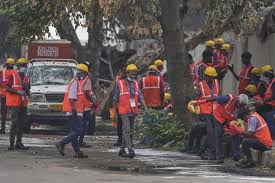The tragic crash of Air India Flight 171, which killed at least 270 people, has thrown the airline’s hard-fought revival into uncertainty. Owned by the Tata Group since 2022, Air India had been undergoing a high-profile transformation involving mergers, fleet upgrades, and service improvements. But the accident, followed by hoax bomb threats and technical snags on other flights, has shattered public confidence and cast a long shadow over the airline’s ambitious plans.
Investigators from India, the UK, and the US are now deeply involved, with the cause of the crash still unknown. Aviation experts say the global scrutiny could delay the airline’s progress and force a strategic pause as Air India grapples with operational, legal, and reputational fallout.
The Tatas now face a multifaceted challenge. As former airline director Jitendra Bhargava noted, Air India was already burdened with legacy issues. With rising safety concerns, the airline has suspended 15% of international wide-body operations until mid-July for enhanced inspections.
Campbell Wilson, the airline’s CEO, reaffirmed commitment to supporting crash victims’ families and cooperating with investigations. Tata chairman N Chandrasekaran, addressing staff in a town hall, described the crash as “the most heartbreaking crisis” of his career and urged employees to double down on safety.
Industry analysts warn of a long road to recovery. Drawing parallels to Malaysia Airlines’ decade-long rebound after twin disasters in 2014, they say Air India may lose market share to rivals capitalizing on India’s aviation boom. However, partnerships like that with Singapore Airlines may help restore trust.
Consultants urge transparent communication as the key to regaining public confidence. “If Air India can steer this crisis with consistency and authenticity, it may yet emerge stronger,” said risk expert Mitu Samar Jha.



